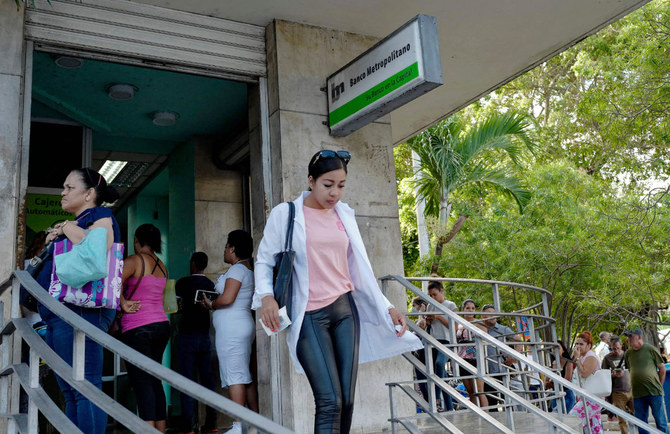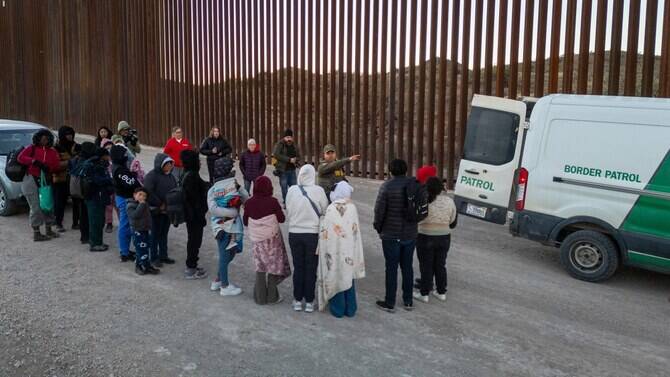LONDON: UK firms continued to send thousands of arms and other military items to Israel despite an announcement by the British government in September that it was suspending about 30 arms-export licenses for the country, according to a report published on Wednesday.
Campaign groups — including the Palestinian Youth Movement, Progressive International, and Workers for a Free Palestine — analyzed data from the Israel Tax Authority and found that UK businesses were still sending shipments of military items, including munitions, arms and aircraft parts.
Their report states that F-35 fighter jet components were delivered to Israel as recently as March, more than five months after the UK government suspended the 30 arms-export licenses, including a ban on aircraft parts. Fighter aircraft, including F-35s and combat drones, have been a critical element of Israel’s military offensive in Gaza since the war began in October 2023, carrying out airstrikes across the territory.
The report said that 8,630 separate munitions had been sent since the license suspensions in September 2024 in the category of “bombs, grenades, torpedoes, mines, missiles and similar munitions of war and parts thereof.” UK firms also delivered four shipments of arms to Israel that included 146 items identified under a customs code as “tanks and other armoured fighting vehicles, motorised, whether or not fitted with weapons, and parts of such vehicles.”
The authors of the report also found evidence that 150,000 bullets were shipped from the UK to Israel in October 2023, prior to the suspension of the licenses.
John McDonnell, a former Labour shadow chancellor, and MP Zarah Sultana have sent a letter to Foreign Secretary David Lammy calling for an investigation into the report’s findings.
Lammy told Parliament in October that much of the military equipment the UK sends to Israel “is defensive in nature. It is not what we describe routinely as arms.”
McDonnell and Sultana said it would be a resignation issue if it was discovered that he misled parliament and the public about the suspension of arms-export licenses to Israel.
They also called for an immediate halt to all arms exports to Israel and said the public “deserves to know the full scale of the UK’s complicity in crimes against humanity.”
Sultana said: “This explosive report shows the government has been lying to us about the arms it is supplying to Israel while it wages genocide in Gaza. Far from ‘helmets and goggles,’ the government has been sending thousands of arms and ammunition goods.”
McDonnell called on the government to “come clean in response to this extremely concerning evidence and halt all British arms exports to Israel to ensure no British-made weapons are used in Netanyahu’s new and terrifying plans to annex the Gaza Strip and ethnically cleanse the land.”
The Israeli military campaign in Gaza has killed more than 50,000 Palestinians since the start of the war in October 2023, following the deadly attack by Hamas on southern Israel.
The Israeli government faces an ongoing case at the International Court of Justice over its military actions in Gaza, which have led to a humanitarian crisis and mass killings. In addition, the International Criminal Court issued an arrest warrant for Israeli Prime Minister Benjamin Netanyahu for crimes against humanity and war crimes related to the war in Gaza.
In a statement to The Guardian newspaper, a Foreign Office spokesperson said: “This government has suspended relevant licenses for the (Israeli army) that might be used to commit or facilitate serious violations of international humanitarian law in Gaza.
“Of the remaining licenses for Israel, the vast majority are not for the Israeli Defense Forces but are for civilian purposes or reexport, and therefore are not used in the war in Gaza. The only exemption is the F-35 program due to its strategic role in NATO and wider implications for international peace and security.
“Any suggestion that the UK is licensing other weapons for use by Israel in the war in Gaza is misleading. The UK totally opposes an expansion of Israel’s military operations in Gaza. We urge all parties to return urgently to talks, implement the ceasefire agreement in full, secure the release of hostages taken by Hamas, and work towards a permanent peace.”

























